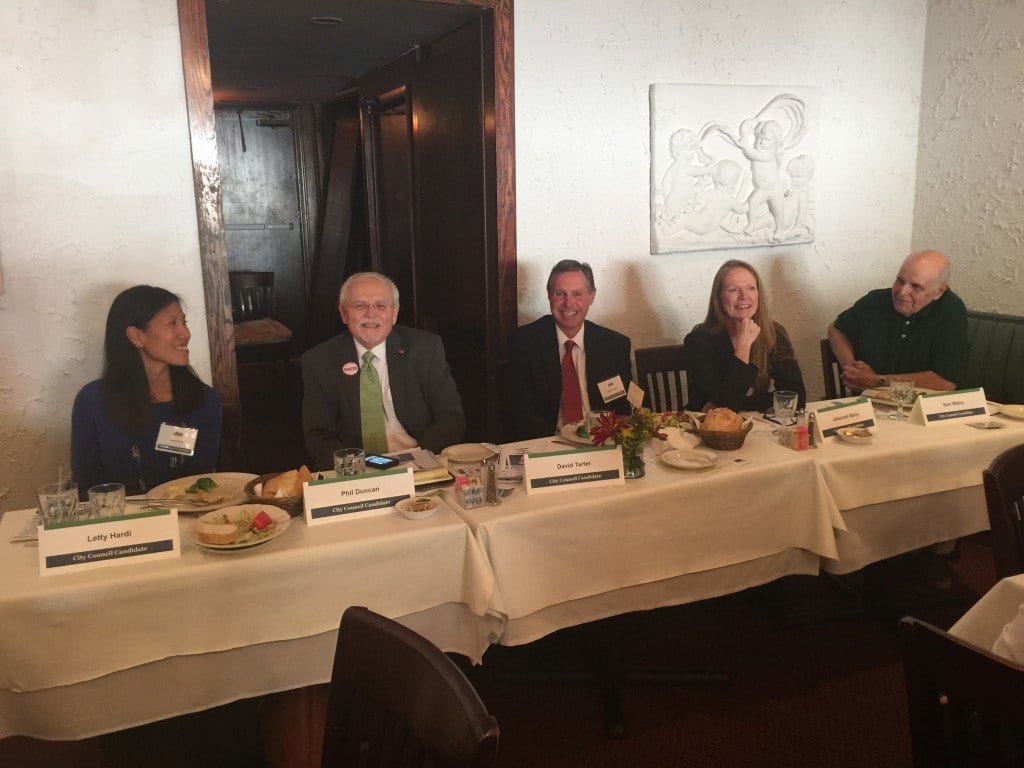
The five candidates seeking three seats being contested in the upcoming Nov. 3 election in the City of Falls Church faced off in front of a large turnout at the monthly luncheon of the Falls Church Chamber of Commerce Tuesday, and with the focus on economic development, the characterization of campaigns by one candidate seemed apropos: it is a choice between two “M’s,” moratorium versus momentum.
Incumbent Councilman Phil Duncan, seeking a second term on the Council, coined that phrase, and put himself solidly on the side of “momentum.” He, newcomer Letty Hardi and incumbent Mayor David Tarter all fall on that side of the divide, while Sam Mabry and Johannah Barry, both former Council members seeking another crack at the job, made no bones about their preference for a “moratorium” on mixed use development, that form of economic development that has dominated the commercially-zoned areas of the City since 2002.
In addition to opening and closing remarks, the five candidates all responded to the same four questions — all centered on economic development issues — a refreshing change from other forum formats where they were each asked to respond to different questions, making it more difficult for both them and their audiences to delineate differences among them. This time it was far easier.
Mabry and Barry questioned whether mixed use projects have been a net plus for the City, despite overwhelming objective data showing they’ve contributed a net $2.8 million annual fiscal plus (after the costs calculated for educating school aged children), created more customers for local businesses and gathering spaces for community events. Mabry said that the jury will be out until the City’s fiscal modelling includes the impact of new capital projects required as collateral factors, such as new schools, library and City Hall, are calculated in. Barry said that the City has reached a “tipping point” of too many people, and that it is not just a matter of fiscal, but aesthetic and social impacts, as well.
Tarter said he is “very optimistic” about the City’s future through “high quality economic development that “grows the economic pie,” citing the investment that has already been designated to new lighting, crosswalk and biking improvements downtown, the addition of three new grocery stores for the first time in more than 30 years, and plans for transportation and parking improvements. Hardi argued for the ability to have both robust economic growth and to maintain Falls Church’s “small town character.” Duncan said the key to effective economic growth in the future lie in growing a customer base, capturing drive through traffic to orient to local businesses (with a parking garage, signage and other means) and the need for leaders to be present in the business community. He cited that he’d done more than 40 groundbreakings, ribbon cutting and other celebrations of business successes in his first term.













